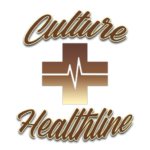
How Is AI Being Used In The Medical Field?
Here at Culture Heathline We Want To Take This Time To Talk About The Evolution of AI in Revolutionizing Healthcare! In recent years, Artificial Intelligence (AI) has emerged as a transformative force in healthcare, poised to revolutionize patient care, diagnostics, treatment methodologies, and administrative procedures. Its applications across various medical domains signify its potential to redefine the healthcare landscape.
AI’s Pivotal Impact in Healthcare
Diagnostic Precision: AI algorithms analyze extensive datasets, aiding physicians in rapid and precise disease diagnoses. It substantially enhances medical imaging interpretation, enabling the identification of anomalies that may elude human observation in X-rays, MRIs, and CT scans.
Tailored Treatment Strategies: Leveraging patient data like genetic profiles, medical histories, and lifestyle information, AI crafts personalized treatment plans. These strategies elevate treatment effectiveness while minimizing adverse effects, signaling a shift towards tailored medical solutions.
Streamlined Drug Discovery: AI expedites drug development by swiftly sifting through extensive datasets to pinpoint potential drug candidates. This acceleration significantly truncates research timelines, potentially reducing costs and expediting life-saving medication availability.
Enhanced Patient Interaction: AI-powered healthcare chatbots and virtual assistants engage patients, offering immediate responses, scheduling appointments, providing medication reminders, and dispensing basic medical advice. This engagement boosts patient satisfaction and facilitates seamless interaction with healthcare services.
Proactive Care with Predictive Analytics: AI-driven predictive analytics empower healthcare professionals to anticipate health risks, disease progression, and treatment outcomes. This foresight facilitates proactive interventions and personalized treatments, effectively preventing or managing medical conditions.
Administrative Streamlining: AI optimizes healthcare administrative tasks, managing schedules, electronic health records (EHRs), billing, and workflow. This efficiency liberates medical staff, allowing them to devote more time to patient care. Surgical Precision: AI-driven robotic systems augment surgeons during intricate procedures, ensuring precision, stability, and access to challenging anatomical areas. This advancement yields improved surgical outcomes, shorter recovery periods, and reduced complications.
Challenges and Ongoing Developments
Despite its profound potential, AI in healthcare confronts hurdles related to data privacy, regulatory compliance, validation, and ethical considerations. Addressing these challenges is critical for harnessing AI’s benefits while ensuring patient safety and ethical utilization. In conclusion, AI’s continuous evolution reshapes healthcare delivery, promising a more efficient, precise, and patient-centric system. As AI advances, it stands as a beacon, driving transformative changes in healthcare, ultimately enhancing patient outcomes worldwide. Stay tuned to our platform for the latest trends and updates at the intersection of technology and healthcare, exploring the innovations propelled by AI in revolutionizing the future of healthcare delivery.

